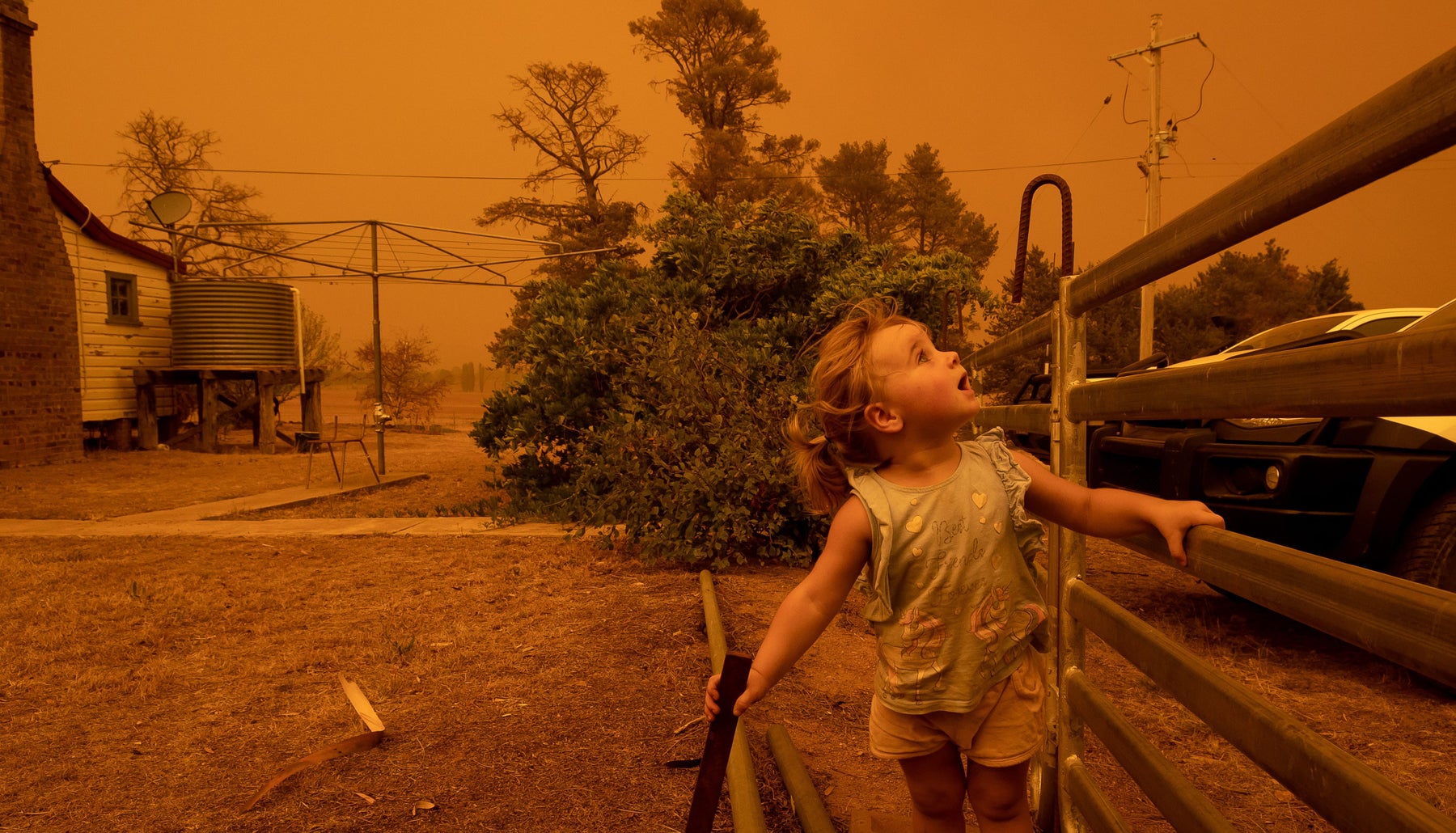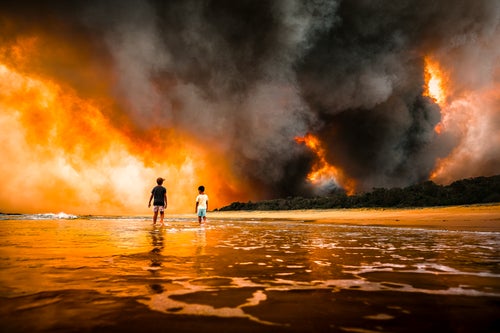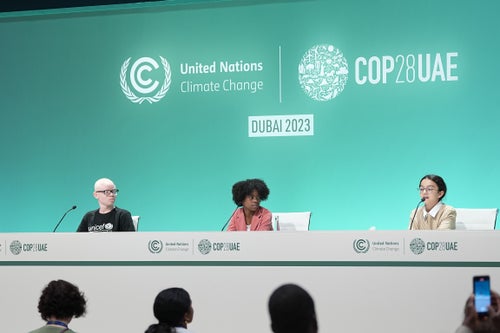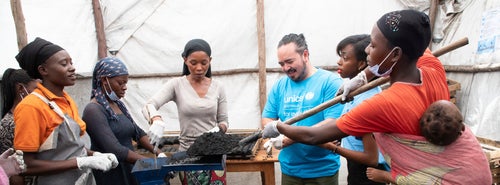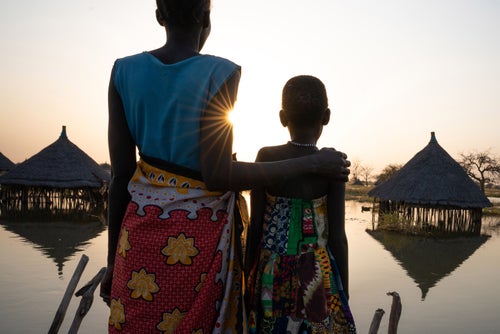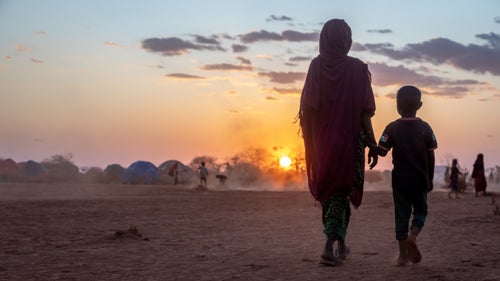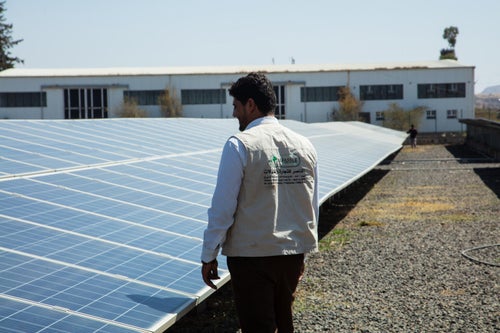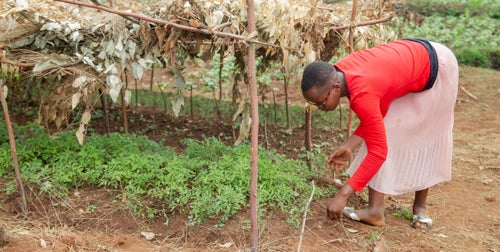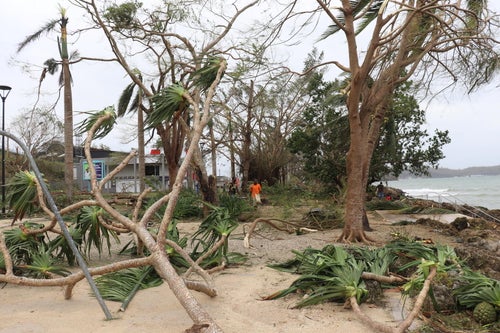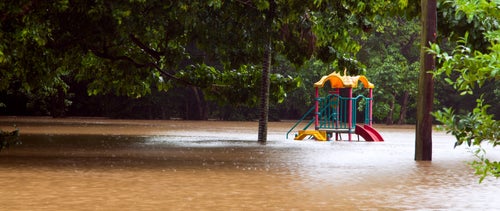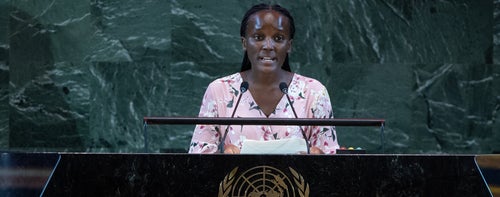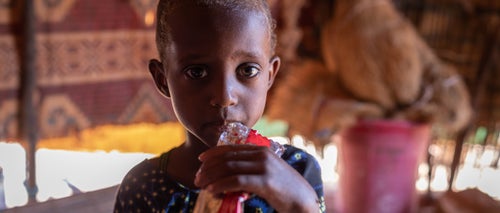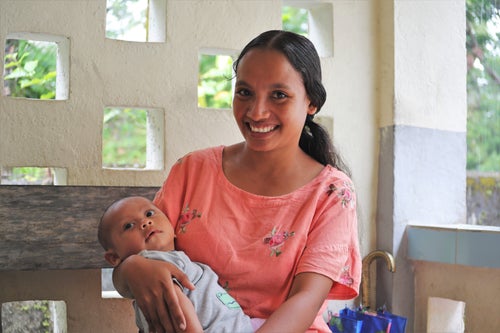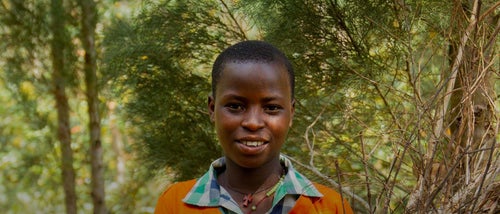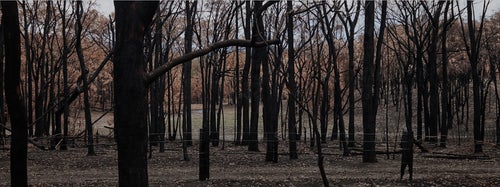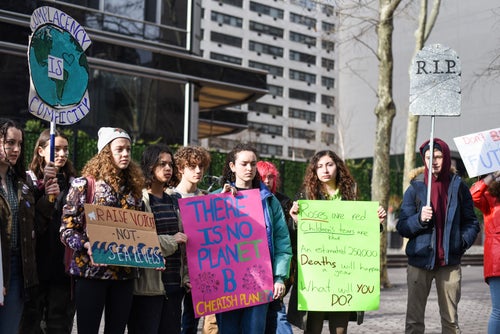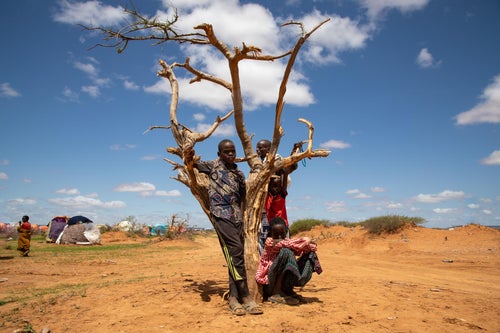A child today will experience 3x more climate disasters than their grandparents.
Ensuring that our children inherit a liveable planet is just as essential as providing emergency relief during times of disasters.
Here in Australia and around the world, the growing number of extreme weather events is impacting the lives of children. When bushfires hit, children lose their homes and whole communities. When floods strike, schools and health centres are destroyed. When droughts endure, access to food and safe water are significantly reduced.
The scientific evidence is clear – the frequency, intensity and duration of climate-related extreme events and the slow onset of changes, such as sea level rise and increasing temperatures is escalating, and it’s putting more children’s lives in danger. Over 1 billion children are at extremely high risk of the impacts of climate change today. That is nearly half of the world's children. We’re working to change that through our work in emergencies, our programmatic work in the region, and our advocacy.
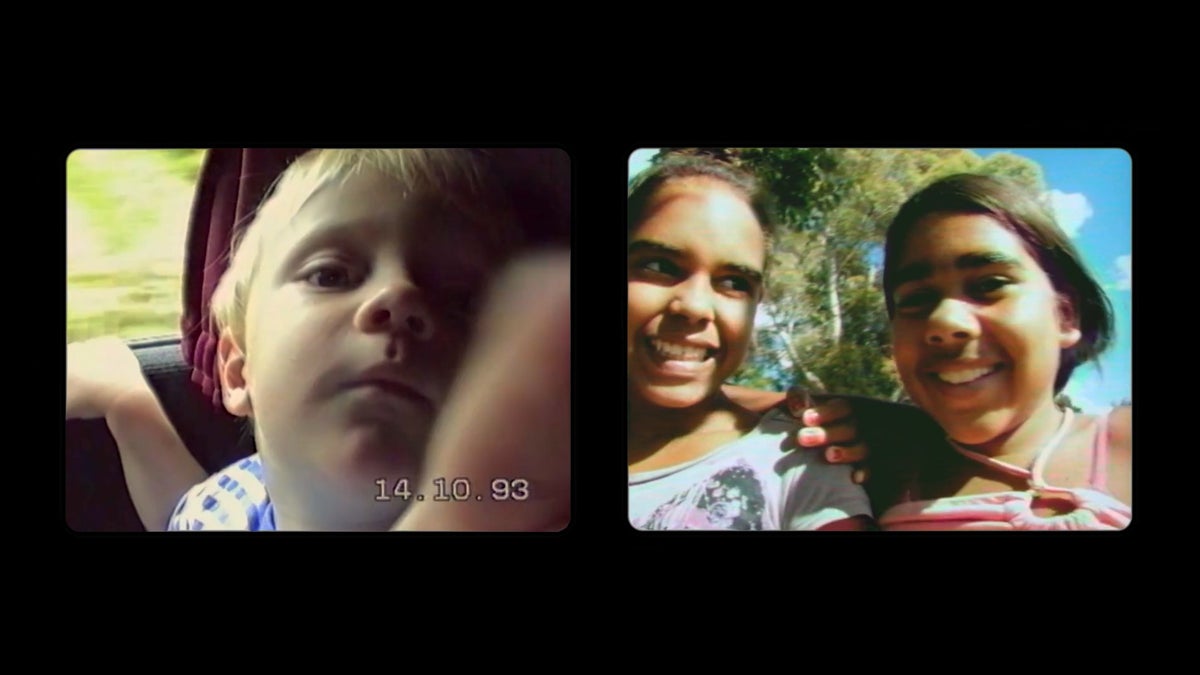
Climate change is changing childhoods
1 in 3
Today, more than 1 in 3 children around the world are highly exposed to heatwaves.
1 in 7
Today, more than 1 in 7 children around the world are highly exposed to flooding.

NextGen: a UNICEF Australia podcast
Here at UNICEF Australia, we’re giving young people a platform to speak up on issues they care about. In every episode, our UNICEF Australia Ambassador and your podcast host, Rae Johnston, is passing the mic to young people and experts as we discuss everything from climate change to mental health and inequality.
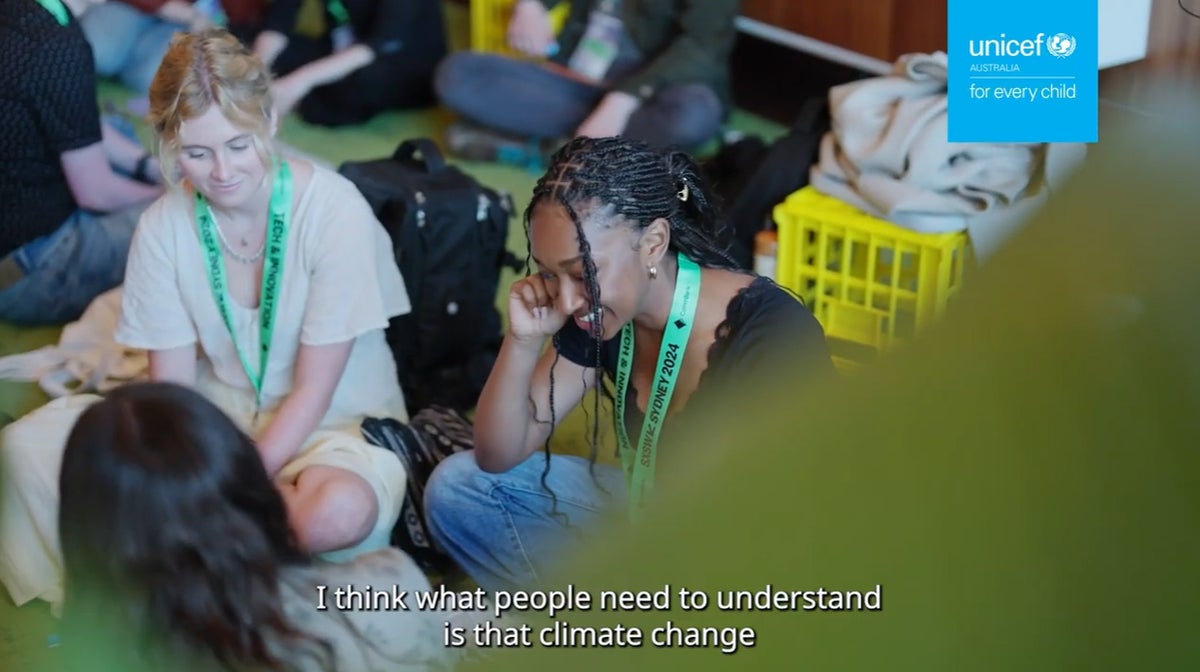
Why young people should be involved in climate action
Protecting and empowering children in the face of climate change
Over the past 30 years, the number of climate-related disasters has tripled. Every child in the world is already affected by at least one climate or environmental shock, and over one billion are at extremely high risk.
From cyclones in Vanuatu to devastating floods in Pakistan and droughts in Somalia, UNICEF is always there during times of emergency.
In 2022 alone, UNICEF responded to 94 climate-related emergencies, and we continue to support children and young people to safeguard their futures by empowering them to implement change in their communities. We also give young people a voice and a platform to advocate for climate action.
"We are accelerating our focus and efforts to protect, prepare and prioritise children in the climate crisis. We are doing this through advocacy with governments, climate resilient programs especially in the East Asia and Pacific region, and enabling young leaders to help speed up the pace of change by taking their place at decision-making tables."

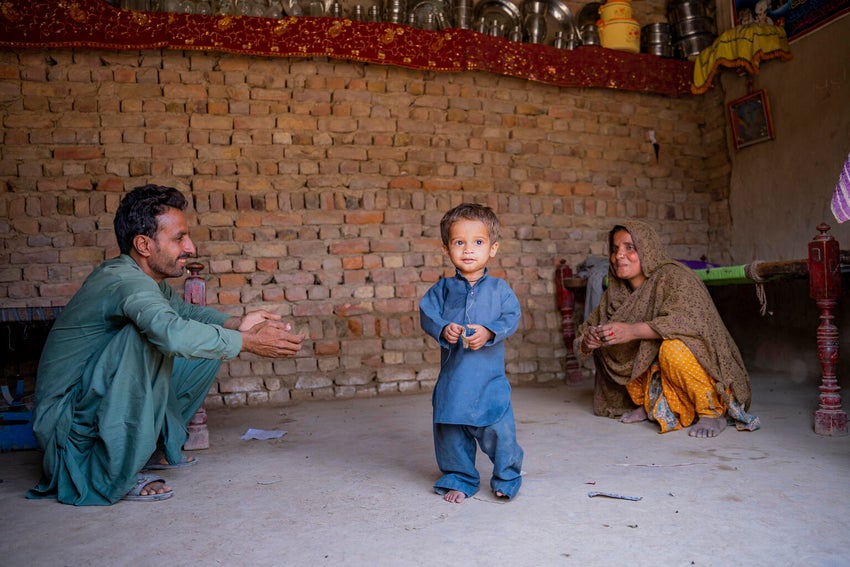
Fighting malnutrition in the face of climate change
In August 2022, during the mammoth climate-induced floods in Pakistan, Azaan’s family was among the millions affected. Unfortunately, as the fields became flooded, access to food grew scarce. This predicament worsened when Saeein, Azaan's father, could no longer work in the fields.
In a routine screening during a UNICEF-supported Mobile Health Clinic visits to their village, Azaan was found to have Severe Acute Malnutrition and was immediately started on a treatment of ready-to-use therapeutic food (RUTF).
Four months later, during a second visit to a UNICEF-supported mobile health clinic, Azaan was a very different child to the one seen before.
“Before treatment he was an inactive child without energy... with treatment his appetite even improved and now he runs around in curiosity,” says Reshma, Azaan’s mother.
We’re supporting young people by empowering them to implement
Young people are leading local and global advocacy efforts to increase climate action, inspiring many to join the cause. UNICEF Australia’s 2020-21 Young Ambassadors consulted more than 4,000 young people aged 13-17 across Australia, identifying climate change as the greatest threat to the future wellbeing and livelihood of children and young people in Australia. Our Young Ambassadors took these findings to Canberra — along with recommendations on the other key issues identified by young Australians — and presented them to the nation’s key decision makers. Similarly, in Timor-Leste and Cambodia, we are supporting young people to develop leadership and advocacy skills, and enhancing access to decision-making platforms, providing them with meaningful opportunities to advocate for action on their most pressing issues, including climate change.
In Burundi and Papua New Guinea, we are supporting the use of innovative technologies for cooking to significantly improve the health of families by reducing air pollution in the home. Simple and innovative cooking technologies increase thermal efficiency, reduce wood consumption for fuel, minimise deforestation caused by firewood collection, and improve indoor air quality. This has the added benefit of reducing the amount of time spent by children — often girls — away from school collecting firewood, frequently in dangerous situations.
In Cambodia, Timor-Leste and Papua New Guinea, we are installing climate-resilient and sustainable water supply systems in health centres, schools and communities, supporting drought and disaster-prone areas to have continuous access to safe, clean water. This includes using technology for rainwater harvesting, solar water pumps and capacity building on conservation for community-based water resource management.
Our approach to addressing high levels of chronic malnutrition in Papua New Guinea is designed to support communities to become more resilient to the impacts of climate change on food systems. This includes establishing vegetable gardens in preschools and schools and enabling students to learn about how to protect the environment, while eating a nutrient-rich diet. Establishing improved sanitation and hygiene practices in schools and communities is keeping families healthy and their local environment clean.
UNICEF Australia’s consultations with children and young people after droughts, bushfires, and floods across Australia has repeatedly revealed that their needs and priorities are either invisible or misunderstood in disaster response, recovery, and preparedness. Partnerships such as the Bushfire Recovery Program with Royal Far West have generated insights into what child-focused recovery should look like. In addition, as climate disasters become more frequent and intense, we are working with governments and other stakeholders to create child-sensitive disaster frameworks across the country.
During 2020 and in response to the devasting Black Summer Bushfires, UNICEF Australia and Royal Far West formed a partnership to deliver customised support to children and young people impacted by these events.
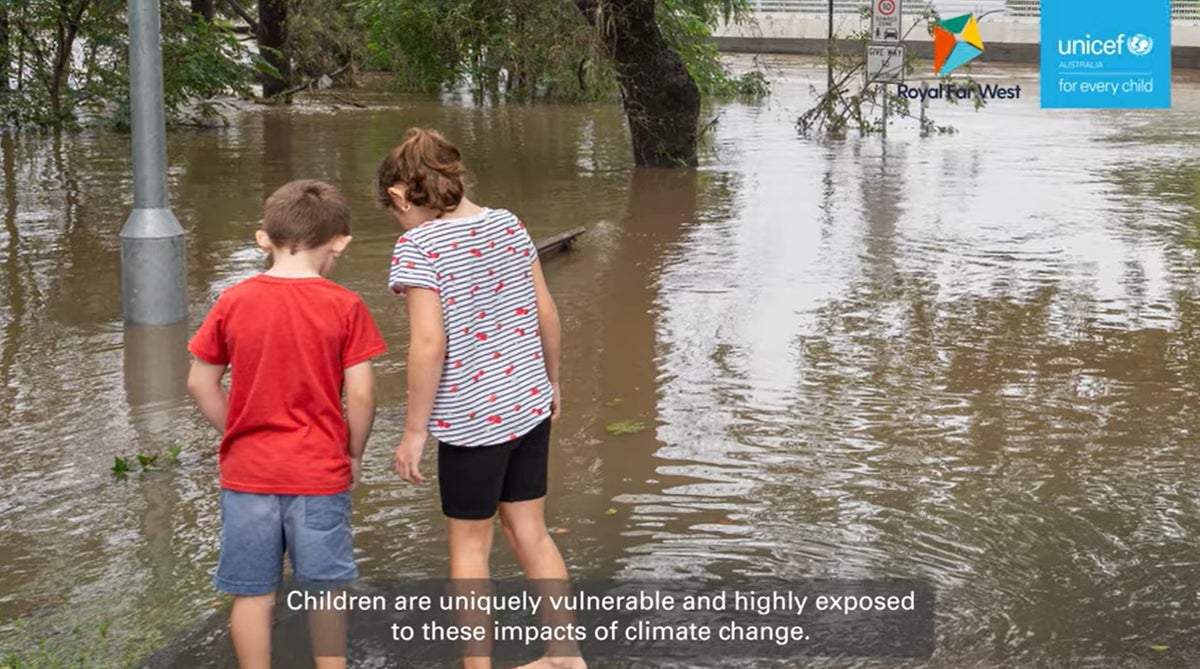
Children are at the forefront of climate change
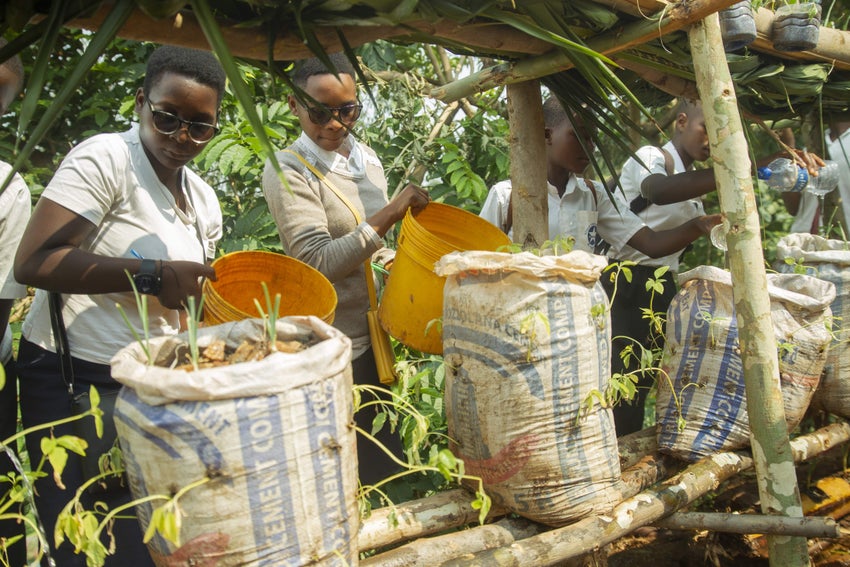
Climate resilient solutions are essential for the future of children around the world.
One of the ways UNICEF is responding is through a student-led initiative in the small African nation of Burundi called Creatable - a learning program that teaches innovation and science, technology, engineering, and mathematics (STEM) to high school students.
Created by Australian production company FINCH, Creatable trains local teachers to deliver a bespoke creative problem-solving program. Students work to solve real issues in their lives – such as mitigating the impacts of climate change and increasing access to fresh food – helping inspire them to stay in school.
As part of the Creatable program, children at 10 schools discovered they could grow vegetables in innovative vessels, using the trunks of banana trees and old food sacks. This idea both contributes to community food production and avoids the need to clear new agricultural land.
Climate change is changing childhood. Help us protect it.
We need your help to protect children from the effects of climate change, fight for their voices to be heard and build a sustainable future.
Inspiring action and the impact of our work
We're working to protect children in a changing climate.



